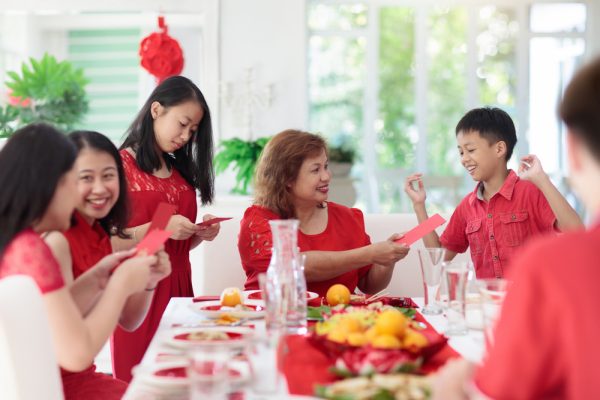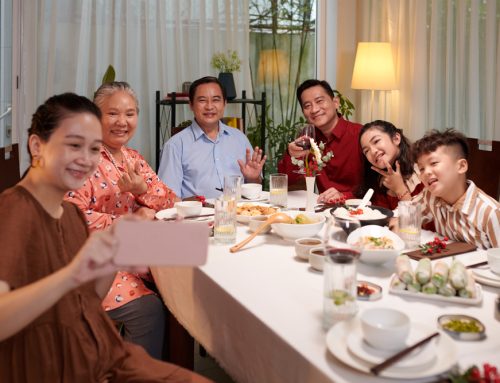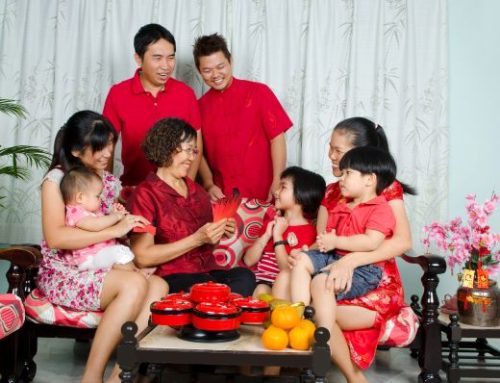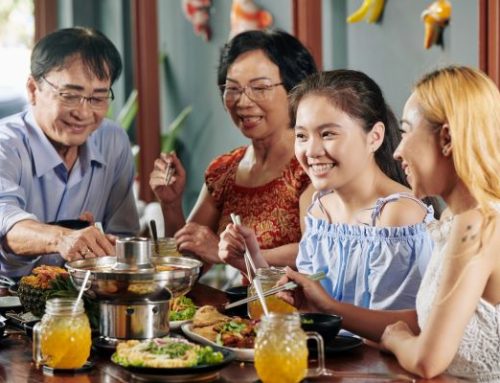This year’s Chinese New Year falls on the 10th of February 2024. Chinese New Year is also called the Spring Festival – and the celebration goes on for 15 days.
This is a time for Family reunions, bonding, connections and catching up with relatives and friends that we don’t see quite often. This is a time where family members travel back from interstate and overseas to gather, catch up, to celebrate, and to welcome the new year together as a family.
This is also a time for the younger generation to learn about their family roots, traditions and culture, and the festivity rituals and customs of the New Year. For example, they can learn what we normally do during Chinese New Year and why.
What do we do on the first day of Chinese New Year? What food do we normally cook and serve? How do we greet the elder generations during this festive time? How do we celebrate this festivity? What do we wear on the first day of Chinese New Year?
Few common rituals of Chinese New Year
Talking about food for example, families across the globe will most probably be celebrating Chinese New Year’s Eve with a reunion dinner, albeit the food served may vary. Food can be a hot pot, steamboat, rice with fish dish, dumplings, longevity noodles, sticky rice balls, or vegetarian dishes etc. The ritual is different for each family according to their customs.
Most Chinese families will wear new red or bright clothing on the first of the new year to symbolise joy, auspiciousness, prosperity, and good energy.
Red packets with money will be given to the younger generation or those who are not yet married. This is to represent good luck and well wishes for the new year ahead. Who should give the red packets? Normally it is parents to children, elderly relatives to unmarried relatives, or children to elderly parents or grandparents.
Changes in traditions
However, like many things, even though tradition travels with people… with many families living overseas or far away, it is harder to maintain the traditions we grew up with; customs also change and adapt along the way.
Many families are living far away from their family and their motherland, and Chinese New Year overseas is not a public holiday, therefore the celebrations may differ from what we grew up with.
With work and other family commitments, families are gradually opting to eat out on Chinese New Year’s Eve as opposed to hosting their own steamboat at home. Alternatively, some families opt to buy some of the traditional dishes from restaurants rather than cooking themselves.
Some families choose to travel elsewhere rather than celebrating Chinese New Year at home.
Fireworks were a must growing up during Chinese New Year’s eve; however, in most major cities, it is now banned for safety purposes as well as noise pollution.
Red packets were the highlight of Chinese New Year for the younger generations; however, it is now gradually being taken over by e-ang pau (transferring red packet money online rather than physical red packets), as more and more family members are living so far away from each other.
Traditions travel with people
So no matter where you are in the world, we are forever connected with our family and our roots, and you can take this opportunity to introduce your children to your traditions and culture…
Wishing you and your family a Happy Chinese New Year. May the year of the *wood Dragon bring you and your family peace, happiness, health, and prosperity.
*Each year each zodiac sign (12 altogether) is associated an element, and this year it is the the wood







Leave A Comment